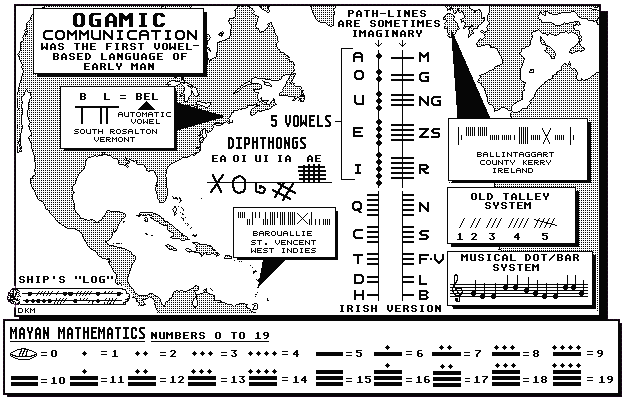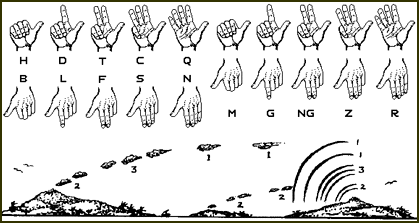

Ogam can be sent by smoke and drum beat signals


Ogam can be sent by smoke and drum beat signals
1/ Although it is known that many North American Indians
personally communicated by employing visual gestures, it would
also make sense in believing that an ancient seafaring culture of
the North Atlantic would need a simple alphabet to record and
send simple messages - and would have also adapted the
vigesimal dot/bar style of the Mayan number symbol system from
Middle America into the twenty-letter "geometric progressive"
alphabet of dots and bars of the Atlantic realm known as Ogam.
(The morse code-like characteristic use of Ogamic Communication
also can be found in the common American Indian method of sending
messages by using smoke and drum signals.)
2/ The lineal imagery of Ogam and its simple adaptability to
be etched on long water-resistant logs made it the practical
medium of alphanumerical communication among marine merchants
throughout the Atlantic realm - in fact, recent discoveries of
"proto-Phoenician grove writing" have appeared in
Brazil, the West Indies, along the Atlantic Seaboard of North
America, the British Isles, and on the Iberian coast.
(Because much of Ogamic literature was recorded on wooden logs,
much of it never survived the vulnerable organic decay associated
with wooden items, for example; A ship's "log book" was
originally a "tally stick" or small "log" of chronological events which
was only capable of enduring several hundred years or so -
depending on the quality and care of the wood)